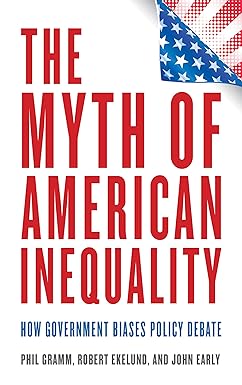Mr. Ramirez notes:
As President Biden celebrates his 81st birthday, voters should consider both he and Trump will be older entering a new presidential term than Ronald Reagan was when he left office.
It's Sunday, and the New England Patriots (2-8) are going up against the New York Football Giants (3-8) later today. Amazingly, the Pats are favored by the betting public. But our task here is to look at the election betting odds, and it turns out the fossils still lead the mammals:
| Candidate | EBO Win Probability |
Change Since 11/19 |
|---|---|---|
| Donald Trump | 38.5% | +1.2% |
| Joe Biden | 28.1% | -0.9% |
| Gavin Newsom | 9.9% | -0.8% |
| Nikki Haley | 7.4% | +0.5% |
| Robert Kennedy Jr | 3.7% | unch |
| Michelle Obama | 3.2% | +0.5% |
| Ron DeSantis | 2.3% | -0.2% |
| Other | 6.9% | -0.3% |
Wow. Trump. Really? That can't last, can it?
Also of note:
-
Didn't help him with the punters, though. Eric Boehm notes some pouncing in the GOP field: Ron DeSantis Rediscovers the First Amendment's Protections for Anonymous Speech.
When former South Carolina Gov. Nikki Haley pitched a terrible (and likely unconstitutional) idea to force social media companies to verify all users and effectively ban anonymous accounts, she drew a sharp rebuke from Florida Gov. Ron DeSantis.
"Haley's proposal to ban anonymous speech online—similar to what China recently did—is dangerous and unconstitutional," DeSantis posted on X (formerly Twitter). He pointed out that some of America's founders, including The Federalist Papers' authors Alexander Hamilton, John Jay, and James Madison published their essays anonymously—part of a long tradition of anonymous speech in America.
In the week since those initial remarks, Haley has backpedaled a bit. She now admits that Americans have a First Amendment right to anonymous speech online but continues to support a crackdown on foreigners who "create anonymous accounts to spread chaos and anti-American filth."
Why the "rediscovers" in Boehm's headline?
Meanwhile, a bill introduced in the Florida Legislature earlier this year and backed by DeSantis aimed to make several changes to how Florida law handles defamation cases filed against news organizations. Among the changes was a provision telling courts to regard as false any content from anonymous sources, unless it could be proven true.
So DeSantis is iffy on the First.
-
They were both way too fond of corporate welfare. Brittany Bernstein looks at another bit of Haley/DeSantis sniping: Ron DeSantis and Nikki Haley Play a Game of 'No You' on China while Trump Glides By.
As the race for second place heats up, Nikki Haley and Ron DeSantis have begun to play a game of “Who was cozier with Chinese business while governor?”
At least $18 million has been spent in the presidential race on TV ads mentioning China, according to AdImpact data, with Republicans accounting for 90 percent of that spending. Nearly $26 million has been spent on digital ads on the topic, though Republicans account for just 58 percent of that spending.
The latest ammunition in the fight comes from a recent Miami Herald report that reveals that DeSantis and committees affiliated with him have received $340,000 from Xianbin Meng, the CEO of a Tampa refrigerant company with direct backing from China, companies associated with Meng, and the companies’ employees. Meng, the CEO of iGas USA, gave DeSantis more than $11,000 just three months ago.
The charges and countercharges are pretty wild. Meanwhile:
While DeSantis and Haley have trained their attacks on each other, front-runner Donald Trump’s record of making amiable comments about China and doing business in the country has largely escaped scrutiny.
Trump, who owns 114 trademarks in China for possible business opportunities, according to financial filings released earlier this month, recently called Chinese president Xi Jinping a “very smart person” during a campaign rally in Iowa.
-
Hey, kids, what time is it? Christian Ferry says it's Time for Nikki Haley To Live Free or Die.
Time and money are the two most limited resources in a political campaign. While a manager may be able to squeeze in one more fundraiser or send an additional solicitation, no campaign can ever get back misspent time. In presidential nomination contests, well-spent time and money translate to momentum, and enough momentum, such as the kind generated from winning early contests, is hard to stop. While Donald Trump continues to enjoy a large lead in the early states, his victory is not inevitable. If Republicans want to turn in a different direction from another Trump presidency, they need to coalesce around the one candidate who finds the right strategy to optimize the remaining time and money and generate maximum momentum from the early contests.
Today, Nikki Haley has momentum propelling her. She is moving in the right direction in the Iowa, New Hampshire, and South Carolina polls. But to pull off the upset of defeating the former president, Haley must decide if Iowa or New Hampshire is the state to make her stand. Ron DeSantis has clearly picked Iowa, and Chris Christie planted his flag in New Hampshire. However, Haley is still trying to play in both, which really means neither. It is time for her campaign to pick, and New Hampshire gives her the best shot to win.
Fun Fact: Counting the 18 NH GOP primaries held since 1952, the winner has gone on to win the eventual GOP nomination 15 times. (Misses: Henry Cabot Lodge, Jr. in 1964; Pat Buchanan in 1996; John McCain in 2000.) A pretty good record there.
Recently on the book blog:
![[Competing Fossils]](/ps/media/bb277f18-c03a-4154-b76f-766700fbcbb9_1229x935.jpg)

![[The Blogger and His Dog]](/ps/images/me_with_barney.jpg)



